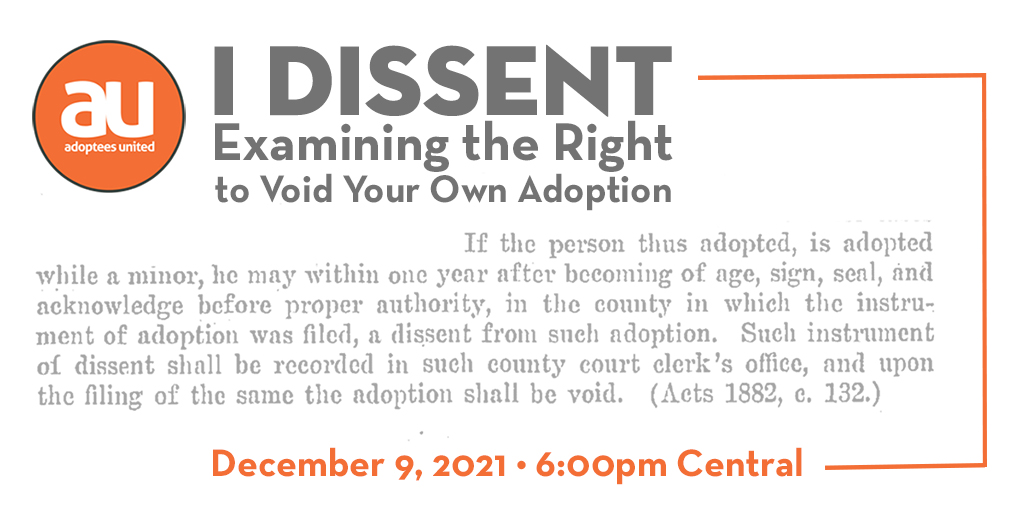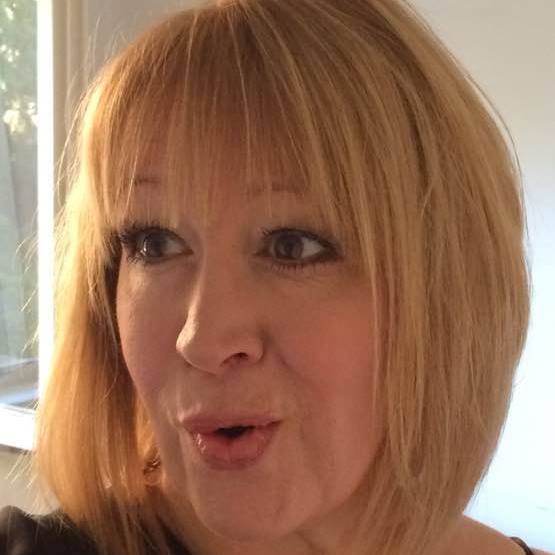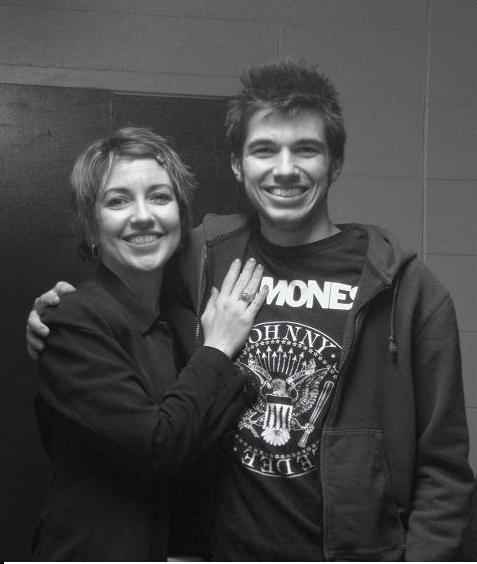West Virginia once had a law that allowed an adult adopted person, at age 18, to dissent to their adoption and automatically void it—and there are recent efforts to revive that law.
An adoptee as an adult can at any time seek “readoption” by a birthparent—or adoption by anyone else for that matter.
Adoptive parents have for decades been able to “disrupt” an adoption and literally give the child back or “rehome” them with another family, often legally. And historically most adoptive parents were given a specific “return” policy that allowed them to return an adoptive child if the child was “defective” or “feeble-minded.”
Adults in the past—and continuing to this day—are able to use adoption as a way to structure their own adult relationships, whetherto secure inheritances, to counteract historical discrimination that prohibited same sex marriages, or to legalize a relationship for whatever reasons each adult sees fit.
So why are there no laws today that allow a specific right of an adult adoptee to annul or undo their own adoptions, especially if it is no longer in their best interest? What barriers to vacate or annul an adoption exist and how hard is it to overcome those barriers?

Attorney and Adoptees United board member Gregory Luce will talk with adoptees and others who have circumvented social and legal restrictions on “undoing” an adoption or who are considering other remedies, including “readoption”— i.e. adopting back an adult child who had been relinquished decades ago.
Nikki Carlson will talk about her experience in successfully vacating her adoption in Minnesota and restoring her original birth certificate—but at a great emotional and financial cost. Claudia Corrigan D’Arcy and her son Max Corrigan will discuss how they are exploring whether to “undo” Max’s current adoption by readopting him, including how it could be done and what goes into any decision to do so. We’ll talk with others about how they are considering undoing their adoptions, if they even can. And we’ll discuss what the right of an adult adopted person to annul an adoption could look like and how it could be implemented.
Please join us on December 9, 2021, at 4:00pm Pacific/6:00pm Central for this important discussion.
Registration
This event has already occurred and registrations are no longer available. You can, however, view a recording of the event here.
Panelists

Nikki Carlson
Nikki Carlson was born Baby Girl Miller in 1965 and called Mary. In 1968, she was adopted in Minnesota, legitimized, and given the name Nikki Carlson. It was not a happy or safe adoption.
As a young adult, Nikki met and was rejected by her birth mother. As a middle-aged woman, Nikki met her birth father, who passed away three months later. For personal and inheritance reasons, Nikki vacated her adoption, and was forced to defend herself in court from a birth mum intent upon denying her daughter any connections to her biological family.

Claudia Corrigan D’Arcy
Claudia Corrigan D’ Arcy is a birth mother who relinquished her first born son in a Massachusetts traditional voluntary domestic infant closed adoption situation in 1987. Currently serving as the Associate Executive Director of Communications at the Adoptive and Foster Family Coalition of New York, she has been active in the online adoption community for over two decades, working as a birth parent advocate known for her focus on ethics in adoption practices. Extremely passionate about restoring the rights of adult adoptees to their original birth certificates, Claudia has worked on numerous adoptee rights campaigns across the nation, including lobbying at the annual National State Legislator’s Summit and organizing the Adoptee Rights Coalition’s demonstrations. Joining with the New York Adoptee Rights Coalition, the Adoptive and Foster Family Coalition of New York helped successfully change the original birth certificate laws in New York.

Max Corrigan
Max Corrigan / Gary Gainino / Gman was born and adopted in Massachusetts in 1987. Raised in a traditional closed adoption, he had no contact with his biological family for the first 17 years of his life, until his mother reached out to him on MySpace in 2005. Since their first face to face meeting in 2007, Max has frequently joined his mother in advocating for adoptee rights, especially in the state of his birth as he is still denied access to his own original birth certificate. No longer close with his immediate adoptive family, Max now resides in New York with his birthmother and his biological siblings, where he enjoys gardening, chicken wrangling, and a slight obsession with robot bodies.

